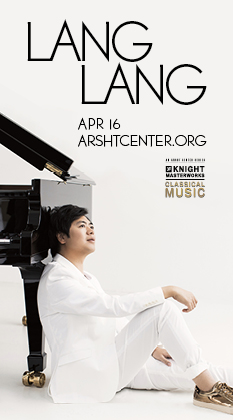MTT, New World close season with a sumptuous, searing Mahler Ninth

Michael Tilson Thomas conducted the New World Symphony in Mahler’s Symphony No. 9 Saturday night. Photo: Spencer Lowell
Few South Florida classical events provide the reliable rewards of Michael Tilson Thomas’s season-ending Mahler concerts with the New World Symphony.
Tilson Thomas, acknowledged as one of the world’s leading Mahler interpreters, led a sumptuous and searing performance of the composer’s Ninth Symphony Saturday that fully lived up to the expectations generated by past Mahler concerts.
The setting sun illuminated a perfect evening in Miami Beach, drawing one of the biggest crowds of the season to spread picnic blankets outside New World Center to watch an outdoor projection of the concert.
Mahler composed his last completed symphony shortly after the death of his daughter and his own diagnosis of heart disease. These events have led commentators to explore the symphony’s evocation of death, from the first-movement rhythm taken by some to mimic the composer’s irregular heartbeat to the slow, peaceful fading away of the last notes more than an hour later.
It’s not clear how much of this is a true picture of Mahler’s intentions. But under Tilson Thomas’s baton, there was a strong sense of vulnerability and tentativeness in the first minutes of the opening Andante, as violins pressed forward with a melody, then paused and moved forward again, giving the passages a searching, breathing, human quality. The contrast couldn’t have been greater when Tilson Thomas unleashed the orchestra for the movement’s surging, roaring climaxes.
Playing in all sections was virtually flawless, in a symphony that’s full of exposed passages for horns, flutes, trumpets and other instruments. Mahler’s distinctive orchestration, with its muted trumpets and horns, violins going high up the lowest string, and other techniques by a master symphonist, came off with all its characteristic force and color.
Tilson Thomas tends to revel in the rusticity of Mahler’s country dance movements, and he and the orchestra appeared to take seriously the composer’s description of the second movement Ländler as “somewhat clumsy and very rough.” The musicians came down hard on the beat with foot-stomping force, in a movement enlivened by swooping trombones and quirky, comically sinister playing by bassoon and contrabassoon.
The full power of the orchestra emerged for the Rondo-Burleske, with forceful horn, trumpet and trombone playing, in a display of orchestral muscle and virtuosity. The contrasts of the movement came off as particularly stark, as the baleful tone of the opening resolved into the nobility of a brass choir and the delicate eloquence of a theme in the strings.
Much of the work’s reputation as one of Mahler’s finest creations rests on the last movement, a huge Adagio that many have taken to be the composer’s farewell to the world.
The New World Symphony’s outstanding string section produced a warn, luxuriant tone in the long-lined melodies that form the heart of the movement. Opening with a rich, soft-edged tone in the lower register, they ascended to the top of their range, maintaining knife-edged clarity even on the highest notes. Emotional and intense, the music flowed under Tilson Thomas’ baton with a steady beat, never losing its essential pulse. The ending was finely paced, as instruments faded away and the music died out.
The concert opened with a work called Lontano (“Far Away”) by the late Hungarian composer György Ligeti, eerie music used in the soundtrack for Stanley Kubrick’s horror movie The Shining. The piece uses long sustained notes in dense clusters, which undergo subtle changes to create a cloudy, mysterious tonal landscape.
New World conducting fellow Dean Whiteside, who led the performance, effectively brought the music from periods of dense fogginess to moments of acute, piercing clarity. To actually see this work performed by an orchestra increased the wonder of the music, as weird, extra-planetary tones emerged from the same instruments that produce the music of Beethoven and Brahms.
The program will be repeated 2 p.m. Sunday at New World Center in Miami Beach. nws.edu.
Posted in Performances
Leave a Comment
Sun May 6, 2018
at 11:42 am
No Comments





